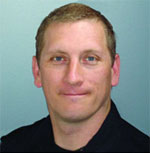
Features
Hot topics
Inside the hall
Between Alarms: Curiosity makes us better firefighters
In today’s fire halls there is an increased volume of knowledge for firefighters, officers and chiefs to retain. With technology shifting the way that we prepare for, respond to and manage emergency incidents, coupled with the amount of information we’re expected to absorb, it is next to impossible for a fire service member to know everything (although I have met a few who were willing to state that they do!).
December 11, 2007
By Vern Elliott
 There’s a rebirth that goes on with us continuously as human beings. I don’t understand, personally, how you can be bored. I can understand how you can be depressed, but I just don’t understand boredom.’
There’s a rebirth that goes on with us continuously as human beings. I don’t understand, personally, how you can be bored. I can understand how you can be depressed, but I just don’t understand boredom.’
– Dustin Hoffman
In today’s fire halls there is an increased volume of knowledge for firefighters, officers and chiefs to retain. With technology shifting the way that we prepare for, respond to and manage emergency incidents, coupled with the amount of information we’re expected to absorb, it is next to impossible for a fire service member to know everything (although I have met a few who were willing to state that they do!).
Thankfully, there are few fire service members who do not train regularly. We work in teams and many are counting on us to perform at our best. So, how can we ensure that our skills and knowledge are appropriate and up to date? One approach is to have everyone on the team be acquainted with everything we do to a high standard, which requires a great deal of training. The alternative is to have a variety of skills and knowledge sustained by different people.
As firefighters there is always something more to learn. No matter how much we can retain, we can always become skilled at something new in the fire department, especially if we find that our current position is not fulfilling our goals. The fact that we respond to fire, medical, rescue, hazardous materials and other types of emergencies provides many possibilities for sustaining curiosity, as do prevention, training and public education.
We all remember our first job and how nervous we were listening to how we were supposed to stock shelves or serve customers. It seemed a daunting task at first but because this was our first job we kept at it (hopefully). Soon we were very
competent in our basic tasks and were able to take on more responsibility and more technical duties.
So, developing basic skills, in turn, gives us the tools to move on to more advanced skills. As with that first job excitement, we remember that first day in the fire station, our first call, our first fire … We were interested because it was fresh and new. After a few years we may have lost that “pump” and may have to discover new ways to expand our horizons. It is easy to focus on the skills that we require daily such as hose loads, basic medical skills, operating a pump and making dinner. However, skills that are seldom used are also rarely practised, so why not focus on those pieces of equipment or skills that we have not taken out for a few years?
There are lots of resources to help us in this pursuit of extra skills and knowledge. One of the advantages of working in the fire department is diversity; everyone brings something different to the table. It goes without saying that if we seek out these people within the department or on specialized teams we can gain a tremendous amount of information. If there are few or no personnel interested in the same topic (which I would find hard to believe) we can always contact people in nearby areas or search the Internet.
Our focus should be on becoming a specialist in the chosen topic over a period of time. If we find that the topic preserves our interest, then continue on. If we find a lack of interest then move on to something new.
Obviously, we cannot abandon the rest of our duties, so we have to continue training and studying but we can preserve interest in even the routine skills by considering new methods or technologies. There are various trade publications, including Canadian Firefighter and EMS Quarterly and some U.S. magazines, that provide reviews and previews of new methodology and equipment. Trade fairs for emergency services are good resources but homebuilding or automobile shows can also provide us with a look into new technology .
Firefighting can be equated to going down a wild river; we coast down the calm water watching for the rapids . For the fast-moving water we see ahead of time we paddle through with relative ease. However, for the torrents we need to be ready to react in a moment’s notice. By being better prepared with personnel who have a variety of expertise we can approach the unknown with the well know.
Vern Elliott has 14 years’ experience in emergency services within municipal and industrial departments as a firefighter/paramedic. He currently works with Strathcona County Emergency Services in Alberta.
Print this page
Advertisement
- From the Editor: Committee to lobby for government funds
- Forcible Entry: Six ways to dismantle barrel bolts